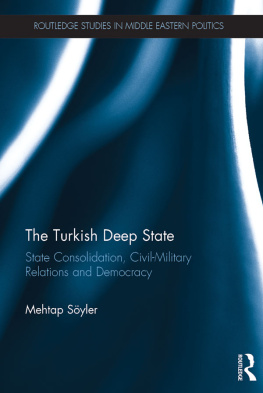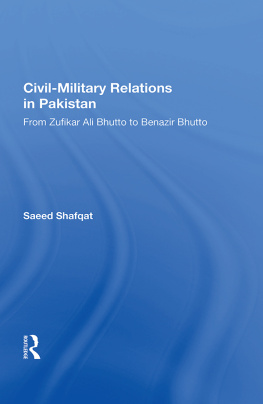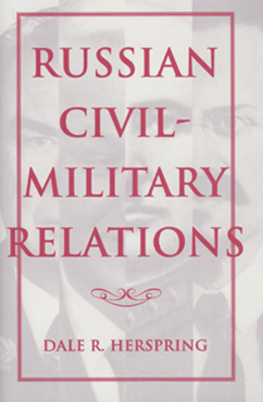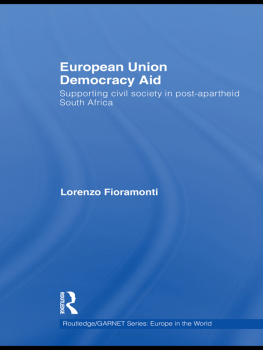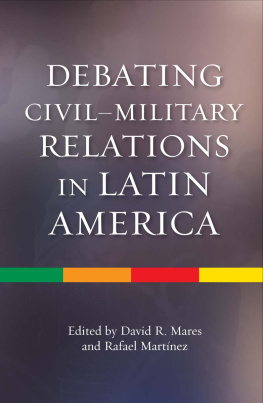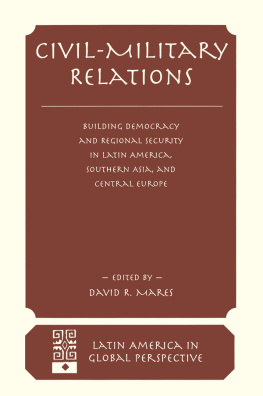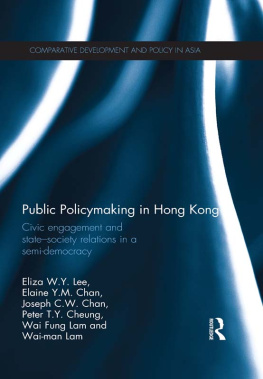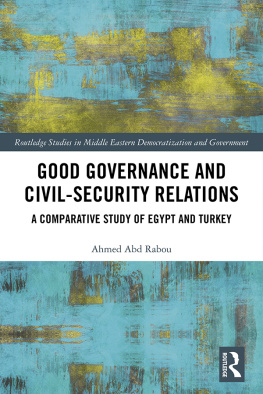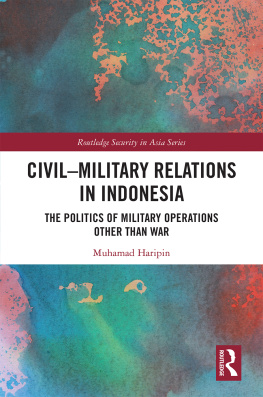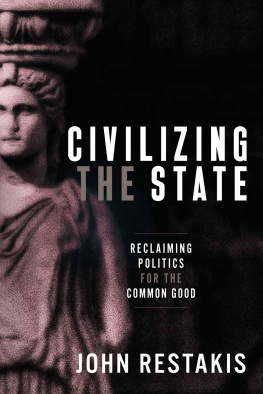The Turkish Deep State
The deep state ranks among the most critical issues in Turkish politics. This book traces its origins and offers an explanation of the emergence and trajectory of the deep state; the meaning and function of informal and authoritarian institutions in the formal security sector of a democratic regime; the involvement of the state in organized crime; armed conflict; corruption; and massive human rights violations.
This book applies an innovative methodological approach to concept formation and offers a mid-range theory of deep state that sheds light on the reciprocal relationship between the state and political regimes and elaborates on the conditions for the consolidation of democracy. It traces the path-dependent emergence and trajectory of the deep state from the Ottoman Empire to the current Turkish Republic and its impact on state-society relations. It reads state formation, consolidation, and breakdown from the perspective of this most resilient phenomenon of Turkish politics. The analysis also situates recent developments regarding Justice and Development Party governments, including the European Union accession process, civil-military relations, coup trials, the Kurdish question, and the Glen Movement in their context within the deep state. Moreover, this case study offers an analytical framework for cross-regional comparative analysis of the deep states.
Addressing the lacuna in academic scholarship on the deep state phenomenon in Turkey, this book is essential reading for students and scholars with an interest in democratization, politics and Middle East Studies.
Mehtap Syler received her doctorate in political science from the Humboldt University, Berlin, where she is currently conducting her post-doctoral research. Her research foci are qualitative methods, democratization, civil-military relations, coming to terms with the past, and international politics of the EU.
A very original project that sheds light on the historical legacy and the nature of the deep state in contemporary Turkey. The author brings her profound theoretical knowledge and methodological expertise to elucidate the origins, the transformation and the particular dimensions of the deep state through time and as it engaged different parts of society. This is an important addition to the the political science literature on the state, authoritarianism and democratization as well as a key contribution to the analysis of the Turkish state.
Karen Barkey, Professor of Sociology and History, and Director of the Institute for Religion, Culture and Public Life, Columbia University
A historically and conceptually profound look into the deep state in Turkey. There is much talk about the deep state, but it is rare to find a scholarly discussion of what it means and what it does not mean.
Dr Esra zyrek, Chair for Contemporary Turkish Studies at the European Institute, London School of Economics.
A strong addition to the comparative historical literature on the state. It combines a fascinating account of the development of the Turkish state, with close attention to methods and a clear theoretical argument.
Gary Goertz is Professor of Political Science at the Kroc Institute for International Peace Studies at the University of Notre Dame.
This book takes issue with an almost untouched and surprisingly understudied problem in Turkey and elsewhere: the deep state. It provides an original and compelling analysis of the criminal, undemocratic and corrupt facets of the state which have become more effective and visible in weak democracies in many parts of the world more intensely than ever in the last few decades. The issue is troubling and has serious consequences ranging from grave human rights violations and human security abuses to governance deficiencies and legitimacy problems for the regimes, certainly playing a primary role in the popular uprisings against the state in many corners of the world. It is important to note that this is not just a Turkey-specific book. The authors analysis is extremely useful for the interdisciplinary community of researchers, students, policy makers, and investigative journalists specializing in many related areas of civilmilitary relations, Middle East/Latin American studies, democratization, authoritarian politics, national security governance, as well as for the average reader interested in security, armies and democracy globally and in the region.
mit Cizre is Professor of Political Science at Istanbul ehir University
Routledge Studies in Middle Eastern Politics
1. Algeria in Transition
Ahmed Aghrout with Redha M. Bougherira
2. Palestinian Refugee Repatriation
Edited by Michael Dumper
3. The International Politics of the Persian Gulf
Arshin Adib-Moghaddam
4. Israeli Politics and the First Palestinian Intifada
Eitan Y. Alimi
5. Democratization in Morocco
Lise Storm
6. Secular and Islamic Politics in Turkey
mit Cizre
7. The United States and Iran
Sasan Fayazmanesh
8. Civil Society in Algeria
Andrea Liverani
9. Jordanian-Israeli Relations
Mutayyam al Oran
10. Kemalism in Turkish Politics
Sinan Ciddi
11. Islamism, Democracy and Liberalism in Turkey
William Hale and Ergun zbudun
12. Politics and Violence in Israel/Palestine
Lev Luis Grinberg
13. Intra-Jewish Conflict in Israel
Sami Shalom Chetrit
14. Holy Places in the Israeli-Palestinian Conflict
Edited by Marshall J. Breger, Yitzhak Reiter and Leonard Hammer
15. Plurality and Citizenship in Israel
Edited by Dan Avnon and Yotam Benziman
16. Ethnic Politics in Israel
Asad Ghanem
17. Islamists and Secularists in Egypt
Dina Shehata
18. Political Succession in the Arab World
Anthony Billingsley
19. Turkeys Entente with Israel and Azerbaijan
Alexander Murinson
20. Europe and Tunisia
Brieg Powel and Larbi Sadiki
21. Turkish Politics and the Rise of the AKP
Arda Can Kumbaracibasi
22. Civil Society and Democratization in the Arab World
Francesco Cavatorta and Vincent Durac
23. Politics in Morocco
Anouar Boukhars
24. The Second Palestinian Intifada
Julie M. Norman
25. Democracy in Turkey
Ali Resul Usul
26. Nationalism and Politics in Turkey
Edited by Marlies Casier and Joost Jongerden
27. Democracy in the Arab World
Edited by Samir Makdisi and Ibrahim Elbadawi
28. Public Management in Israel
Itzhak Galnoor
29. Israeli Nationalism
Uri Ram
30. NATO and the Middle East
Mohammed Moustafa Orfy
31. The Kurds and US Foreign Policy
Marianna Charountaki
32. The Iran-Iraq War
Jerome Donovan
33. Surveillance and Control in Israel/Palestine
Edited by Elia Zureik, David Lyon and Yasmeen Abu-Laban
34. Conflict and Peacemaking in Israel-Palestine
Sapir Handelman
35. Arab Minority Nationalism in Israel
Amal Jamal
36. The Contradictions of Israeli Citizenship
Edited by Guy Ben-Porat and Bryan S. Turner
37. The Arab State and Womens Rights
Elham Manea
38. Saudi Maritime Policy
Hatim Al-Bisher, Selina Stead and Tim Gray
39. The Arab State
Adham Saouli
40. Regime Stability in Saudi Arabia
Stig Stenslie
41. Sacred Space in Israel and Palestine
Edited by Marshall J. Breger, Yitzhak Reiter and Leonard Hammer

